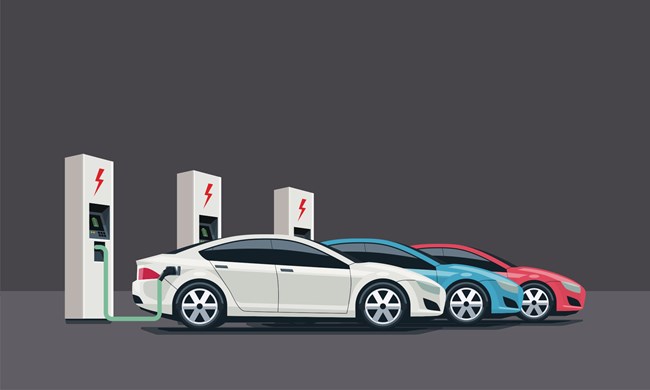We use cookies to ensure that we give you the best experience on our website. If you continue without changing your settings, we will assume that you are happy to receive all cookies on the Business Car website. However, if you would like to, you can change your cookies at any time

The start point for the best source of fleet information |
Workplaces included in new-build EV charger legislation
Date: 24 November 2021 | Author: Sean Keywood

New buildings in England, including workplaces as well as homes and other non-residential developments, will be required to install EV chargers from next year, the UK Government has announced.
It claimed up to 145,000 extra chargers per year would be installed thanks to the legislation.
The law will apply to new builds, and also to those undergoing largescale renovations which end up with more than 10 parking spaces.
The announcement was welcomed by Lex Autolease electrification propositions lead Meryam Brassington, who said: "As momentum continues to shift away from petrol and diesel, investment in the UK's charging infrastructure is mission-critical if we are to deliver on the ambitious Road to Zero targets.
[The] announcement is another strong signal of intent from policymakers to position the UK as a world leader in electrification.
"By ensuring the product supply and supporting charge network is in place, we can continue to help individual drivers and businesses accelerate their transition towards an electric future."
Giving his reaction, Hitachi Capital Vehicle Solutions head of decarbonisation Jonny Berry was less enthusiastic, although he did welcome the inclusion of workplace charging in the legislation.
He said: "Whilst we welcome the proposed legislation, the rollout of up to 145,000 new EV charging points each year under these plans continues to fall short of the level of progress required.
"Crucially, around 40% of households have no access to off-street parking to install a charger so we need to see a far greater increase in public charging provision than the plans announced if we're to hope to achieve the targets set for 2030 and continue to accelerate the transition to EVs we're currently seeing in the market led by fleets.
"Scaling up workplace charging is also a step in the right direction as this moves from an attractive benefit tool to an essential requirement. Fleets should take advantage of this opportunity, but such an undertaking doesn't have to be tackled without support.
"For a successful transition, fleets should seek out well-designed, optimised, reliable solution with business-critical aftersales support. The only thing they should be concerned about is being left behind."
EV charging firm Newmotion's regional manager for the UK and the Nordics Alan McCleave said: "In order to improve the user experience and thereby further encourage EV adoption, EV charging needs to be prioritised, and this move is getting the country one step closer to mass EV adoption.
"Not only does this change demonstrate that the government is serious in its commitment to ban new petrol and diesel car sales from 2030, it shows that it's supporting a more sustainable future.
"While this new initiative is proof that policy support will be vital for effective charging infrastructure, we must also see greater collaboration amongst charging solution providers across the UK to achieve this target, with interoperability at the core of this.
"Naturally, we ourselves are going to need to put some serious infrastructure development in motion to support that uptick, and now is a good time for businesses to look at how they can bring their strategy in line with the growing adoption of EVs. Our number one aim is to get as many people driving clean miles as possible and we're excited to see the UK is moving in the right direction."











